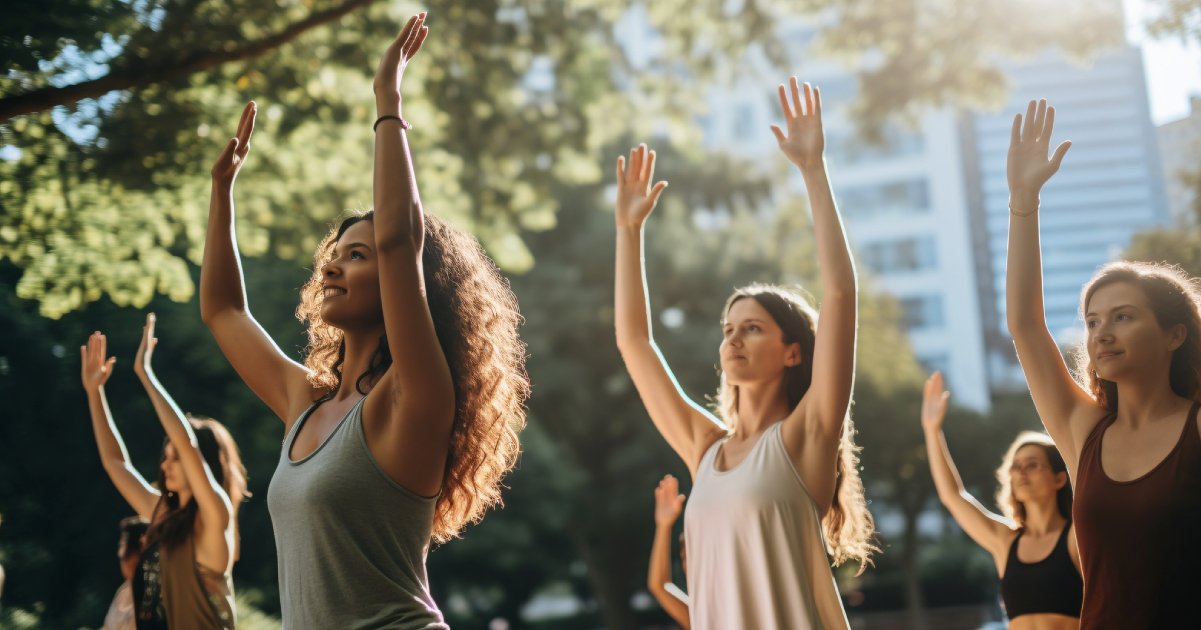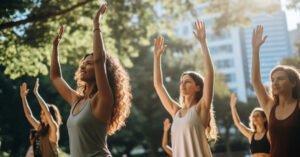

Let's talk about
Movement and Health
There are numerous benefits to physical activity and scheduled exercise for people of all ages. Some benefits include:
- Increased self-esteem
- Flexibility
- Reduced risk of injuries
- Cardiovascular health
- Weight management
In conjunction with good nutrition, regular exercise reduces the risk of degenerative diseases.
According to the American College of Sports Medicine, there is scientific evidence to recommend at least 150 minutes of moderate-intensity exercise per week for adults of all ages.
Exercises - Recommendations
The recommendations are categorized as follows:
Cardiovascular Exercise: Adults should engage in about 150 minutes of moderate-intensity exercise per week.
This can be achieved through 30 to 60 minutes of moderate exercise (5 days a week) or 20 to 60 minutes of vigorous exercise (3 days a week). It can be in one continuous session or several short sessions of at least 10 minutes.
If possible, there should be a gradual increase in time, frequency, and intensity.
If unable to achieve this amount of exercise per week, any activity will still provide some benefits.
Resistance Exercise: Adults should train each major muscle group 2 or 3 times a week using different modalities and equipment.
For older adults or beginners, it is advisable to use light weights.
Performing 2 to 4 sets of each exercise improves power and strength.
For each set, do 8 to 12 repetitions to improve power and strength, 10 to 15 repetitions for middle-aged individuals, and 15 to 20 repetitions for older or beginner individuals to improve muscle strength.
Adults are recommended to have 48 hours between resistance sessions.
Flexibility Exercise: Adults should perform flexibility exercises at least 2 or 3 days a week to improve motor skills.
Each stretch should be held for 10 to 30 seconds to the point of mild discomfort.
Repeat each stretch two to four times, accumulating 60 seconds per stretch.
Flexibility exercises are more effective when the muscles are warm, which can be achieved through light aerobic exercise or a warm water bath.
Neuromotor Exercise: Neuromotor exercise, also called functional fitness training, is recommended 2 to 3 times per week.
Exercises should involve motor skills such as balance, agility, coordination, and gait. Multifaceted activities like Tai Chi and Yoga improve physical functions and help prevent falls in adults.
20 to 30 minutes daily is appropriate.
There is incontrovertible evidence that regular physical activity contributes to the primary and secondary prevention of various chronic diseases and is associated with a lower risk of premature death. There seems to be a graded linear relationship between the volume of physical activity and health status, so the most physically active people have the lowest risk. However, the greatest improvements in health status are observed when less fit individuals become physically active.
General considerations:
According to the American College of Sports Medicine, “Unless you are a professional athlete and have to train for several hours, you simply need to stay hydrated with small and frequent sips of water. For workouts lasting less than an hour, it is not necessary to eat anything. However, for longer and more intense sessions, it is advisable to consume between 50 and 100 calories every thirty minutes.”
If you are an athlete, you likely know that your nutrition should be in the hands of a specialized health professional to ensure the necessary repairs.
Physical exercise improves elimination and metabolism; therefore, regular nourishment is important as it is a stressor that increases the formation of free radicals, so additional antioxidant and anti-inflammatory nutrients such as vitamins E, C, bromelain, glucosamine, etc., are necessary.
Continuous sweating causes the loss of nutrients, particularly water, vitamin B1, and essential minerals such as sodium, potassium, chloride, and magnesium. Hydrate appropriately.
Replacing lost nutrients is as important as exercising, so ensure a good diet to prevent sports injuries from healing more slowly due to nutrient deficiency.
Move, Enjoy!










